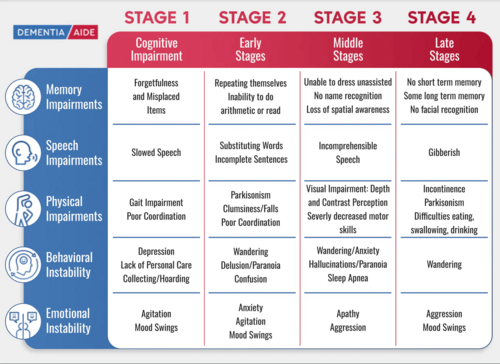Caring for someone with dementia is more than managing daily tasks. it’s about creating comfort, preserving dignity, and staying connected through the ups and downs. Whether you’re just starting or have been caregiving for a while, this guide to dementia care offers practical support and emotional reassurance for every step of the journey.

What Dementia Looks Like in Everyday Life
Dementia doesn’t affect everyone in the same way. At first, your loved one might seem forgetful, misplacing things, asking the same questions, or forgetting familiar routes. Over time, you may notice changes in speech, behavior, and mobility. These changes can be frustrating and heartbreaking, but understanding what’s happening can help you respond with more patience and compassion.
This guide to dementia care encourages you to look beyond symptoms and focus on connection. Even when memory fades, the need for love, security, and dignity remains strong.
Creating a Dementia-Friendly Home
A calm, organized environment can ease anxiety and reduce confusion for someone living with dementia. You don’t need a full home renovation. just a few thoughtful changes:
- Clear pathways to prevent falls and confusion
- Labels or photos on doors and drawers to identify spaces and items
- Soft, natural lighting to reduce shadows and disorientation
- Secure storage for cleaning products or sharp objects
- Safety is important, but so is familiarity. Keep treasured photos, objects, and routines in place as anchors of comfort.
Daily Routines That Support Wellbeing
One of the most helpful tips in any guide to dementia care is this: routines matter. A steady schedule can offer comfort and reduce agitation. Here’s what to include:
- Gentle wake-up and bedtime rituals
- Predictable mealtimes with favorite foods
- Activities like music, puzzles, folding laundry, or walking
- Rest periods, especially in the afternoon
You don’t have to fill every minute what matters is the rhythm and reassurance your presence provides.
Communication from the Heart
As dementia progresses, communication may become challenging, but your connection doesn’t have to fade. Use simple words, speak slowly, and listen patiently. Sometimes, a smile, a warm touch, or shared silence is more powerful than words.
- Tips for better communication:
- Limit distractions during conversation
- Ask one question at a time
- Offer visual cues (pointing, showing) when possible
Avoid correcting redirect instead
In this guide to dementia care, we emphasize empathy over perfection. Your tone, kindness, and patience matter more than saying the “right” thing.
Caring for Yourself, Too
Being a caregiver is an act of love, but also a demanding role. To truly care for someone else, you need to care for yourself, too.
- Ask for help when you need it
- Connect with caregiver support groups
- Take breaks without guilt
- Don’t hesitate to explore professional care or respite services
This journey is not one you have to walk alone. There is support for both you and your loved one.
Conclusion
This guide to dementia care is more than tips and advice. it’s a reminder that what you’re doing matters. Every smile, every kind gesture, every moment of patience is a gift. You may feel tired or uncertain some days, but your love makes a difference.

